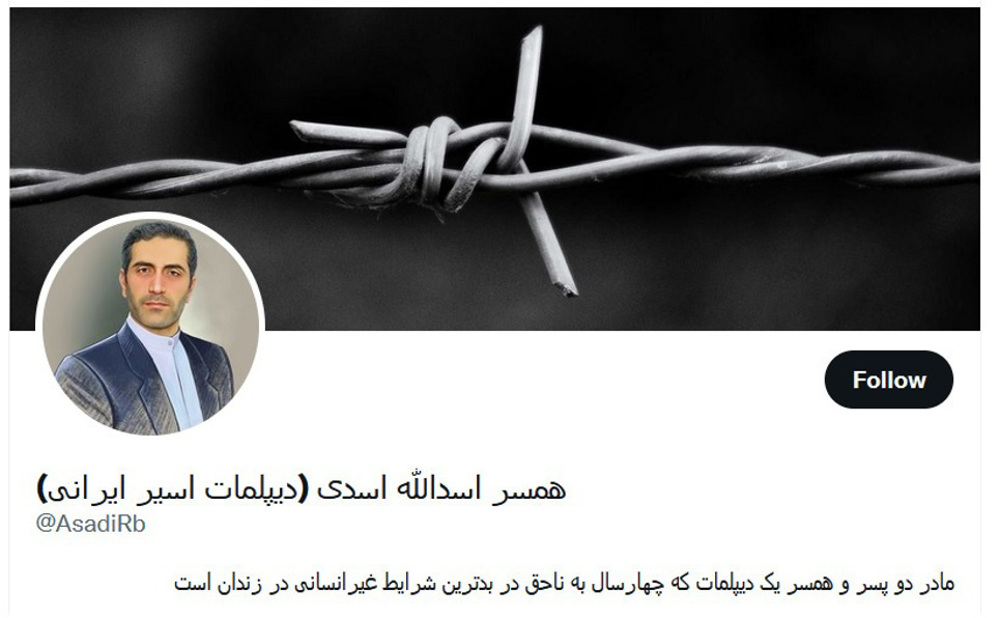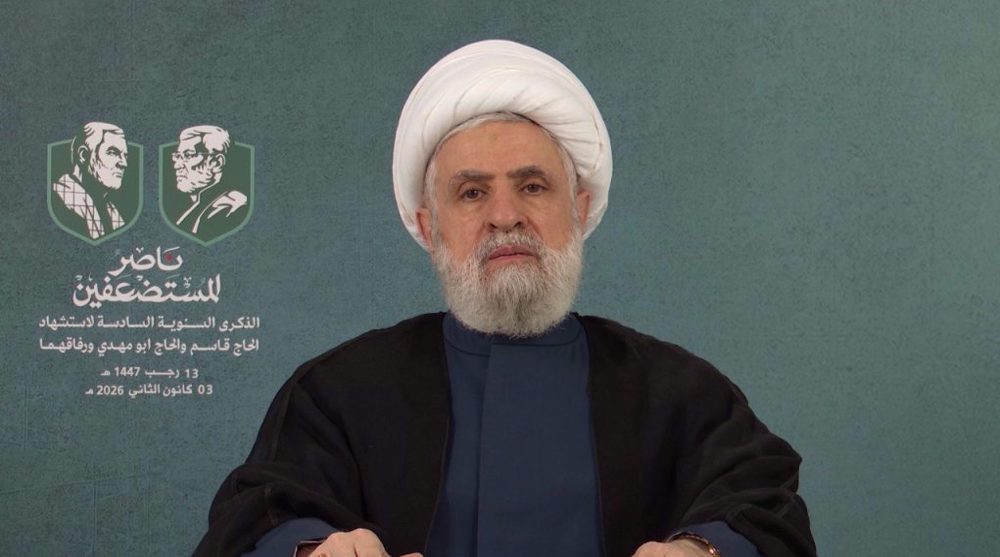Assadollah Assadi’s wife recounts jailed Iranian diplomat’s excruciating ordeal
The wife of Assadollah Assadi, an Iranian diplomat arrested in Germany in 2018 over trumped-up charges and currently serving a 20-year-long prison sentence in Belgium, has recounted the excruciating ordeal his husband has gone through and the inhumane circumstances under which he has been kept in prison in the two European countries.
Assadi’s wife made the revelation in a series of posts on her Twitter account on Sunday, making public part of the inhumane behavior of the so-called European human rights advocates towards him during his detention in Germany and Belgium.
Citing the Iranian diplomat’s hardships during 101 days of detention in Germany, she said he was kept in a bunker for a total of 28 days with no access to water while being deprived of hygiene services.
“In the bunker (28 days in total), I was denied access to water and had to request it via a phone, and if the guards came on time, which was often late, they would give me water in a paper cup through the hatch door,” she quoted her husband as saying.
“Naturally, water was important to me, because in addition to drinking water, I needed water for cleansing in the toilet and ablution for prayers,” he said.
“I was only allowed to brush my teeth once in the morning during day and night. Only once was I allowed to wash my hands with soap; only once was I allowed to dry my hands with a towel.”
Assadi was also said to have been stripped of his personal belongings and was kept under psychological pressure from the guards with his privacy being constantly intruded on.
“My glasses were confiscated in the bunker every evening and the next day, they returned them at my request. In recent days, I managed to get a pen and paper from them. The pen was also taken in the evening,” the Iranian diplomat said.
“In the conditions of being kept in the cell, I could take a shower with the door closed while bathing. But in the bunker, accompanied by the guard, I was taken to the distribution room (where clothes and hygiene items are stored) and there was a shower without a door, and I had to shower in front of the guard, and the guard was obliged not to take his eyes off [me].”
In some other tweets, Assadi’s wife pointed to lengthy and coercive interrogations that the Iranian diplomat had gone through in police custody.
“Throughout the entire interrogation, they tried to fabricate evidence for their unjust accusation by telling blatant lies,” he was quoted as saying. “In a really condescending manner, in order for me to speak in line with their views during the interrogation, they tried to pressurize me through all strictures and prepare me for a forced confession.”
Assadi’s case, according to legal experts, is based on sham and unsubstantiated charges and smacks of political propaganda against the Islamic Republic.
Belgian authorities in June 2018 said the country’s police had intercepted a car carrying homemade explosives, claiming that the Iranian diplomat handed the material to two people in Belgium. He was accused of plotting an attack against the anti-Iran Mujahedin-e-Khalq (MKO) terrorist outfit, a claim that has been strongly rejected by Iranian authorities.
Read more:
The MKO has been responsible for numerous assassinations and bombings against top-ranking Iranian officials since the 1979 Islamic Revolution.
Out of the nearly 17,000 Iranians killed in terrorist attacks since the Islamic Revolution, about 12,000 have fallen victim to the MKO’s acts of terror.
One of the biggest attacks by the group was the 1981 bombing of the Islamic Republic Party’s headquarters in Tehran, which killed Iran’s then-Judiciary chief Ayatollah Mohammad Hossein Beheshti, and 72 others, including lawmakers and ministers.
The terrorist group’s members fled Iran in 1986 to Iraq, where they enjoyed the patronage of former Iraqi military dictator Saddam Hussein.
The group, now based in Albania, was on the US government’s list of terrorist organizations until 2012. Since being delisted, its leader Maryam Rajavi has forged close ties with Western officials.
Venezuelan military stands with acting president after US kidnapping of Maduro
VIDEO | Press TV's news headlines
VIDEO | Protesters in Toronto slam US kidnapping of Venezuelan president
Israeli troops detain, intimidate Palestinian toddler in West Bank
Iran says its investments in Venezuela face no major risk
Make ‘right decision’ or face more US pressure, Rubio tells Venezuela’s Rodriguez
VIDEO | General Soleimani honored in Kashmir, Kargil
US, Israel waging ‘soft warfare’ to destabilize Iran after June defeat: Top general











 This makes it easy to access the Press TV website
This makes it easy to access the Press TV website